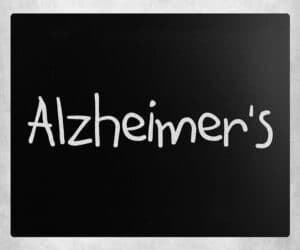
The early stage of Alzheimer’s disease is sometimes referred to as “mild” Alzheimer’s disease and is the time when most people first start noticing their symptoms. These symptoms can be so subtle they are barely noticeable to anyone but the senior dealing with them, their family caregiver, and other close family and friends. Despite these symptoms being mild, this is the time when the care that you give your parent needs to shift to focus on their dementia and start preparing for the future stages of their disease.
Use these tips to help you care for your parent in the early stages of Alzheimer’s disease:
• Talk about it. Don’t think that not mentioning the disease or what your parent is going through is going to make it easier for either of you. Be honest, be upfront, and talk about the condition now and in the future. This will make both of you feel more secure and prepared.
• Think about care. Starting elder care in the early stages of the disease allows your parent to get accustomed to the idea of receiving care and establish routines. It also helps to ensure that your parent is prepared for when their symptoms worsen, which can happen at any time and without warning.
• Discuss future wishes. You want to be able to make the decisions that are right for your loved one and ensure that you are doing what they would want you to do all the way through their progression with the disease. In order to give you the best chances of being able to do this, it is essential that you take the time to discuss their wishes and plans for the future now while they still have the cognitive functioning to do it effectively and accurately. Talk about issues such as hospice care, life support, end-of-life treatment, and final arrangements so that you can both feel confident their wishes will be honored.
• Encourage independence. Supporting your parent in being as independent as possible during this time, including doing things like handling as many tasks as they can and staying active, not only supports their quality of life now, but also stimulate their mind to help it remain sharper and more responsive.
Whether you have recently found out that your aging parent is living with Alzheimer’s disease, or they have been progressing through this disease for some time and have developed symptoms that you do not feel you can handle on your own, now may be the ideal time for you to consider starting elder care for them. An elderly home care services provider can act as a supplement to the care that you already give your senior so that you can feel confident that they are getting everything that they need, while also reducing your stress, easing your care burden, and allowing you to focus on your own health, well-being, and quality of life as well. These highly personalized services can include managing sensitive tasks that you are not comfortable handling, providing safe transportation, offering companionship and support, assisting with activities of daily living, and providing personal care designed to specifically help your loved one with the struggles that they are facing now, and those that they may develop later in their progression.
https://www.alz.org/alzheimers_disease_stages_of_alzheimers.asp
https://alz.org/10-signs-symptoms-alzheimers-dementia.asp
https://www.alz.org/facts/
If you or an aging loved one are considering elder care in Katy, TX, please call the caring staff at At Your Side Home Care. We will answer all of your senior care questions. Call today: (832) 271-1600.
Our Certified Nurse Aides, 24-Hour Live-in Assistants and Home Health Aides are available 24 hours a day, 365 days a year. We also provide the security and confidence of 24-hour Telephone Assistance, so fast, reliable help is always available when it's needed. To learn more about our homecare services see our homecare services page.
Different people need different levels of homecare. To meet the requirements of our clients, At Your Side Homecare maintains consistent staffing levels of caring professionals. Homecare service is available for as little as a few hours a week, or as many as 24 hours a day, seven days a week
- 5 Signs a Senior Might Be in the Beginning Stages of Dementia - April 25, 2025
- What Solutions Can Help Seniors with Mental Health Challenges? - April 18, 2025
- How Does Senior Home Care Help Make Aging in Place Possible? - April 11, 2025



